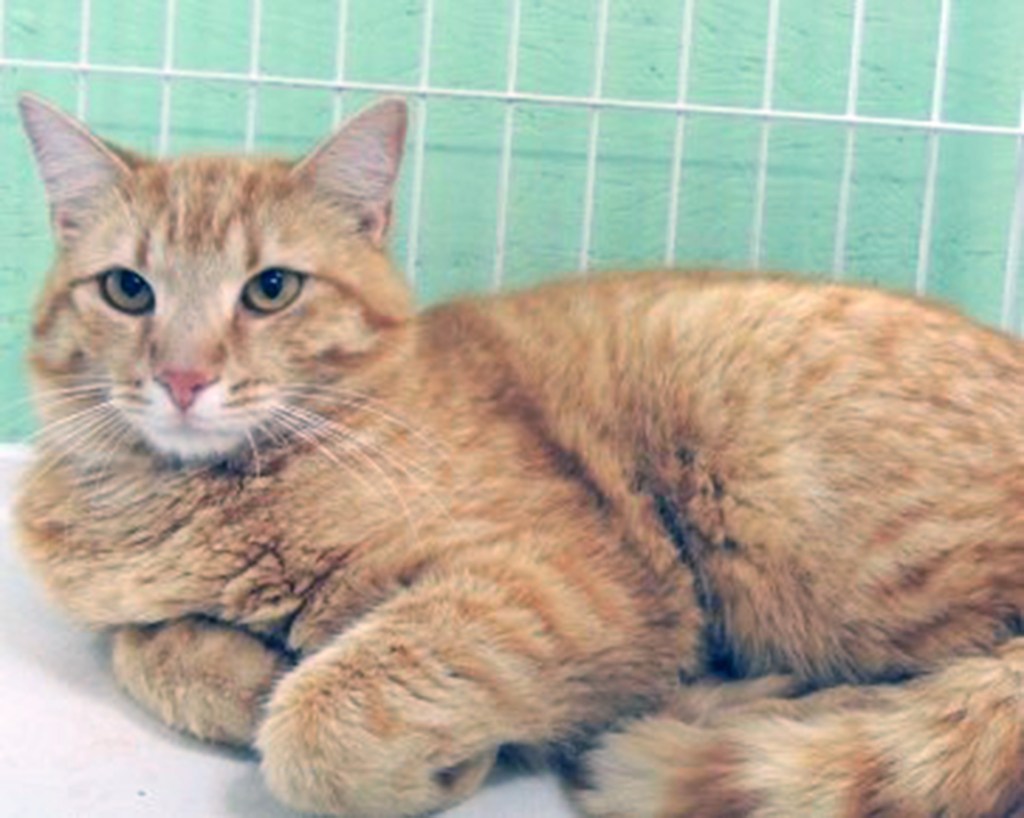Pets and People for 5/30/18
Published 6:30 pm Friday, June 1, 2018

- Milton is a handsome orange tabby, who has already been neutered. Download an application to adopt this great cat.
Each spring, thousands of newborn kittens join the millions of cats already in shelters across the country.
That means your local shelter has tons of cute, cuddly newborns in addition to all the mellow, older cats and everything in between.The shelter staff is ready to help you adopt your very first cat — or to bring home a friend for another beloved cat — just in time for the American Humane Society’s Adopt-a-Cat Month.
This year, America’s first national humane organization is encouraging Americans everywhere to rescue a cat — or two — from a shelter or rescue group. The Humane Society offers the following advice to those considering cat or kitten adoption:
• Consider taking home two. Cats require exercise, mental stimulation and social interaction. Two cats can provide this for each other;
• Find a cat whose personality meshes with yours. In general, cats with long hair and round heads and bodies are more easygoing than lean cats with narrow heads and short hair, who are typically more active. Adoption counselors can offer advice to help you match the individual cat’s personality with your own
• Pick out a veterinarian ahead of time and schedule a visit within the first few days following the adoption. You’ll want to take any medical records you received from the adoption center on your first visit;
• Make sure everyone in the house is prepared to have a cat before your new pet comes home. Visiting the shelter or animal control facility should be a family affair. When adopting a new cat with existing pets at home, discuss with the adoption facility how to make a proper introduction;
• Budget for the short- and long-term costs of a cat. A cat adopted from a shelter is a bargain; many facilities will have already provided spaying or neutering, initial vaccines, and a microchip for permanent identification. But understand that any pet is a responsibility, and there’s a cost associated with that;
• Stock up on supplies before the cat arrives. Be prepared so your new cat can start feeling at home right away. Your cat will need a litter box, a good-quality cat litter, food and water bowls, food, scratching posts, safe and stimulating toys, a cushy bed, a brush for grooming, a toothbrush and nail clippers;
• Cat-proof your home. Food left on the kitchen counter will only serve to teach your new friend to jump on counters for a possible lunch. Get rid of loose items your cat might chew on, watch to ensure the kitten isn’t chewing on electric cords and pick up random items like paper clips, which kittens may swallow;
• It can take several weeks for a cat to relax in a new environment. It’s a great idea to keep the new addition secluded in a single room (with a litter box, food and water, toys and the cat carrier left out and open with bedding inside) until the cat is used to the new surroundings; this is particularly important if you have other pets;
• Be sure to include your new pet in your family’s emergency plan. Add to your emergency call list the phone numbers for your veterinarian and closest 24-hour animal hospital, and be sure to have several days of your pet’s food and medications on hand; and
• If you’re considering giving a cat as a gift, make sure the recipient is an active participant in the adoption process. Though well-meaning, the surprise kitty gift doesn’t allow for a get-to-know-one-another period. Remember, adopting a cat isn’t like purchasing a household appliance or a piece of jewelry — this is a living, breathing and emotional being.
Source: American Humane.
— Pets and the People Who Love Them is brought to you by your friends at the Athens Limestone Animal Shelter. To adopt a dog or cat, please visit the Athens-Limestone Animal Shelter at 1701 U.S. 72 (behind Limestone Veterinary Clinic) visit our Facebook page or call us at 256-771-7889. Email your questions and story ideas to me at PetsAndPeople@charter.net and I’ll check with the experts (veterinarians, animal behaviorists, etc.) and get back to you in a future column.





